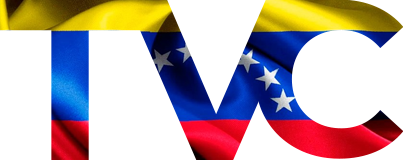Venezuela’s GDP has declined by 40% since 2013. The IMF predicts that GDP will fall by a further 15 percent in 2018, marking an almost unprecedented 50% total decline in GDP. Simply put, Venezuela’s economy will have halved in size over a 4 to 5 year period.
Venezuela is economically dependent on its oil sector, partly because it has the largest conventional oil reserves in the world. Oil accounts for 90% of exports, 50% of budget revenues and virtually all foreign currency earnings. Since oil prices are cyclical, the lack of diversity in the Venezuelan economy is dangerous when oil prices are low. It is no coincidence that the crisis in Venezuela began when oil prices more than halved between 2014 and 2016.
But Venezuela has not only been harmed by the falling value of its oil exports: it has been harmed by its falling oil exports. Oil production continues to fall due to corruption, mismanagement and lack of investment. Oil and gas production declined by 13.5% between October 2016 and October 2017. Venezuela is currently unable to fulfil its existing contracts, and has consistently exported less oil in recent years. This decline in production is a result of political intervention by former President Chavez. When workers at the state-owned oil company PDVSA went on strike in 2003 he fired 18,000 PDVSA workers and replaced them with 100,000 political supporters without adequate skills.
Much of the company’s operating budget was diverted to political patronage and other funds disappeared through corruption, with $500m disappearing into a pyramid scheme run by government-linked financiers. PDVSA ceased to function as an effective oil company, and production dropped even while oil prices remained high. The rate of workplace-related injuries trebled, and 40 workers were killed when a refinery exploded in 2012, causing US$1.7 billion in damage. The sharp fall of global oil prices in 2014 dealt the final blow to Chavez’s policy of political patronage financed by oil revenues.
The Venezuelan Government is concentrating on paying the country’s crippling $150 billion external debt in order to avoid the seizure of its oil exports for non-payment of debts. To help do so it has greatly reduced imports of goods and services, with these having declined by 75% between 2012 and 2016. Industrial output is being strangled by an absence of imported spare parts and services vital to maintaining production.
Now, PDVSA may not function as an oil company for a decade. As incomes have collapsed, workers whose salaries are worthless are stripping PDVSA of equipment and parts. If Venezuela cannot rebuild the oil infrastructure that is critical to its economy, then the crisis will continue for the foreseeable future.
The private sector has been heavily damaged. Between 1998 and 2016, the number of private enterprises fell from 13,000 to 4,000. Chavez nationalised large parts of the economy, including steel mills, cement producers, banks, food producers, farms and shops. This policy has been continued by his successor Maduro. Arbitrary seizures of private property remove any remaining incentives for investment. One of the most damaging policies has been that of price controls. Many producers, including farmers, have reduced or ceased production because the prices they are paid are below the cost of production. The result is shortages of essentials, with ordinary citizens being either unable to buy basic products or forced to queue for hours.
The New York Times described the example of David, a 42 year-old hairdresser with three children who spends much of his time in queues for goods. He described waking up at 5 am and standing for 2.5 hours in a queue to buy a cooking gas canister. By the time he reached the front of the queue the supply of canisters had run out. Of course, even if one can find goods to buy one needs cash to do so, and getting that also requires queuing at banks which is also often unsuccessful.
The collapse in incomes and living standards is extreme and threatens widespread starvation. The minimum wage (earned by the median worker) bought 52,854 calories per day in May 2012 but just 7,005 in May 2017 – not enough to feed a family of five. In December 2017 it bought only 2,740 calories a day, only enough for one person. Further economic decline during 2018 presents a frightening prospect for the Venezuelan population.
